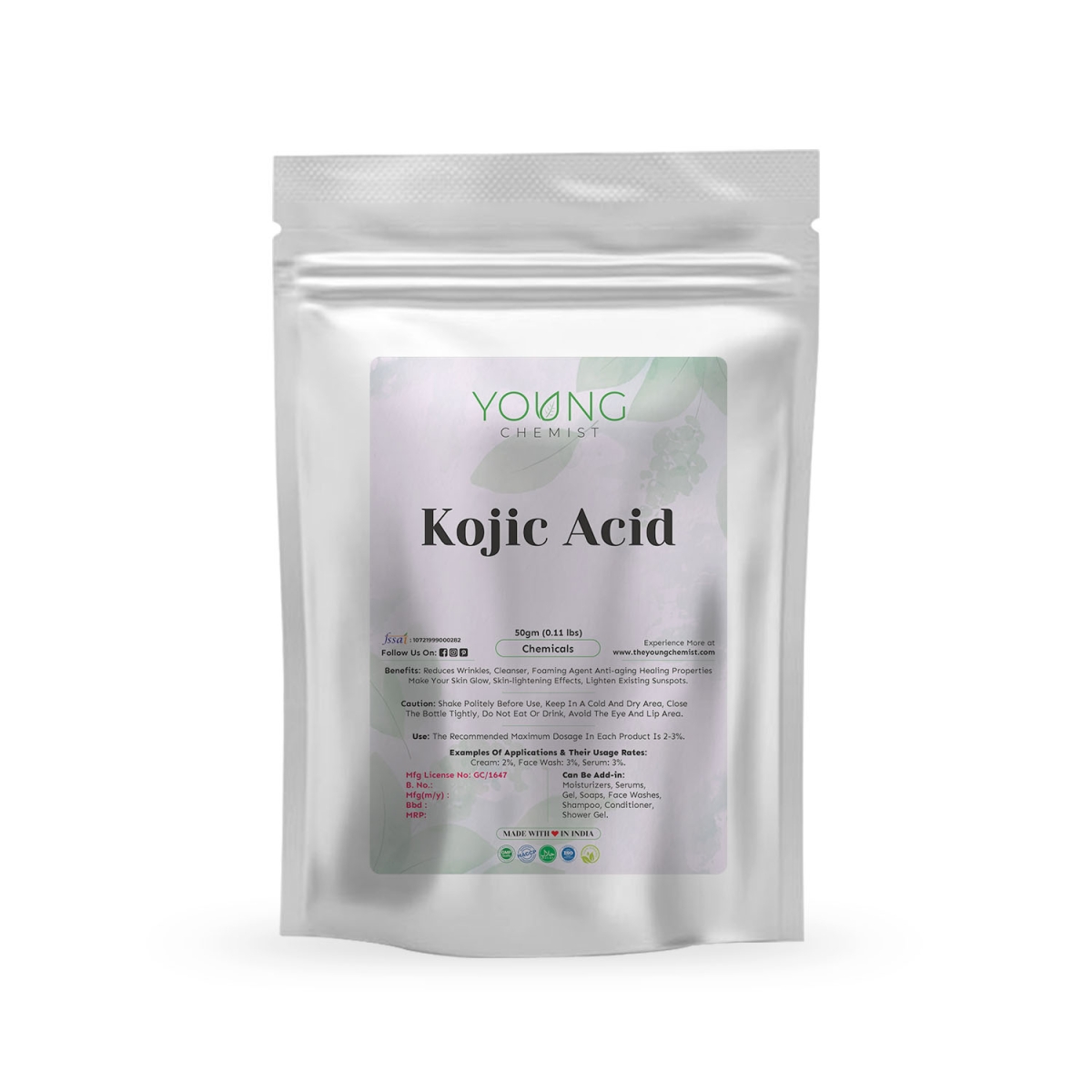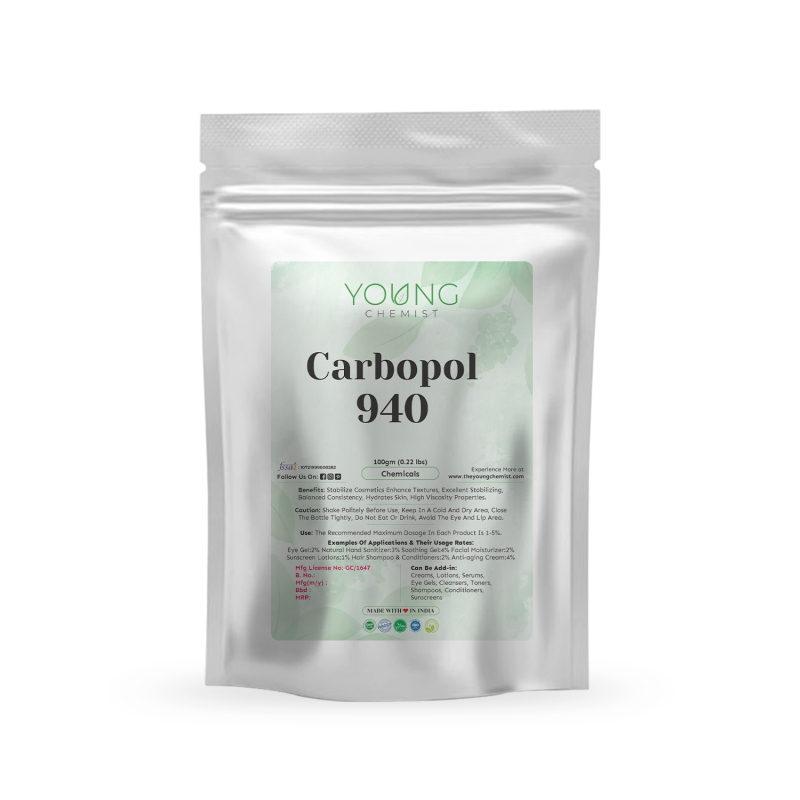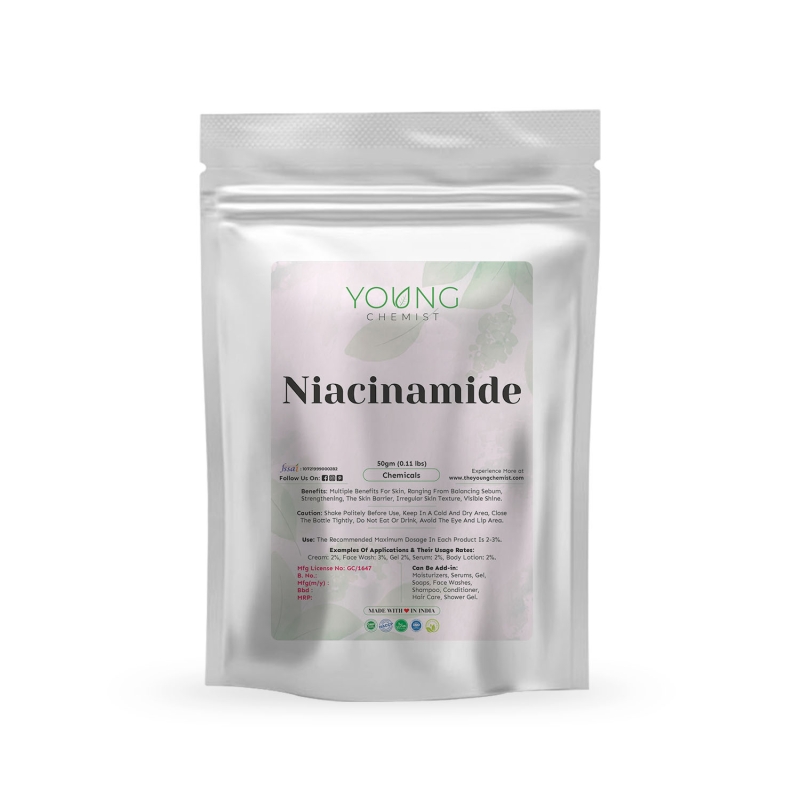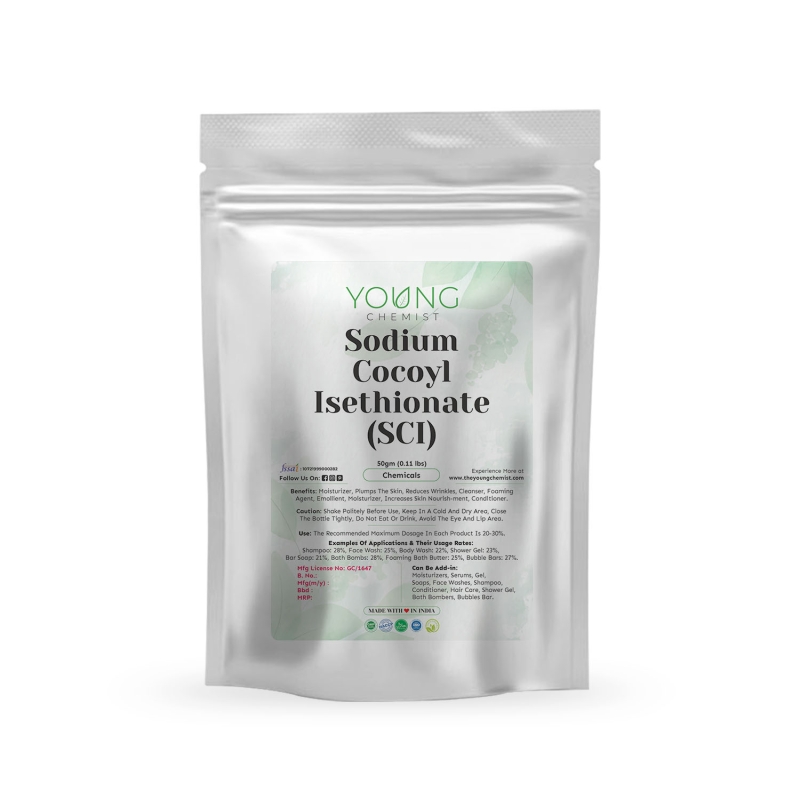-
No Item Added in Cart.

Kojic acid is a popular cosmetic chemical used in many skincare products due to its skin-lightening and brightening properties. It is derived from certain fungi and is known for its ability to inhibit the production of melanin, the pigment responsible for skin coloration.
Kojic acid is a natural compound that is often used as a skin-lightening agent. It works by inhibiting the enzyme tyrosinase, which is involved in the production of melanin. By reducing melanin production, kojic acid helps to fade dark spots, age spots, hyperpigmentation, and uneven skin tone, resulting in a brighter and more even complexion.
- Patch Test: Before using any product containing kojic acid, it is advisable to perform a patch test on a small area of your skin to check for any adverse reactions or sensitivity.
- Follow Product Instructions: Follow the instructions provided on the product packaging for the specific application and usage guidelines. Different products may have varying concentrations of kojic acid, so it's essential to use them as directed.
- Start Slowly: If you are using kojic acid for the first time, start with a lower concentration and gradually increase it to assess your skin's tolerance.
- Sun Protection: Kojic acid can increase the skin's sensitivity to sunlight, so it is crucial to apply a broad-spectrum sunscreen with a high SPF during the day when using products containing kojic acid.
- Use as Directed: Do not exceed the recommended usage or apply kojic acid more frequently than advised. Overuse can lead to skin irritation and other adverse effects.
- Skin Lightening: Kojic acid is primarily used for its skin-lightening properties. It can help to reduce the appearance of dark spots, melasma, and other forms of hyperpigmentation, resulting in a more even skin tone.
- Brightening Effect: By inhibiting melanin production, kojic acid can impart a brightening effect to the skin, making it look more radiant and youthful.
- Anti-Aging Effects: Kojic acid also possesses antioxidant properties, which can help to neutralize free radicals and reduce signs of aging, such as fine lines, wrinkles, and dull skin.
- Acne Treatment: Some studies suggest that kojic acid may have antibacterial properties, making it effective in treating acne and preventing breakouts.
- Skin Conditioning: Kojic acid has moisturizing properties that can help to improve the overall texture and hydration of the skin.
- Skin Sensitivity: Kojic acid may cause skin irritation or allergic reactions in some individuals. If you experience redness, itching, or any other adverse reactions, discontinue use and consult a dermatologist.
- Patch Test: Always perform a patch test before using any product containing kojic acid, especially if you have sensitive skin or a history of allergies.
- Pregnancy and Breastfeeding: If you are pregnant or breastfeeding, it is best to consult with a healthcare professional before using products containing kojic acid.
- Sun Sensitivity: As mentioned earlier, kojic acid can increase the skin's sensitivity to the sun, so it is crucial to protect your skin with sunscreen and limit sun exposure while using products containing kojic acid.
- Interactions: If you are using other skincare products or medications, consult a dermatologist or healthcare professional to ensure there are no potential interactions or adverse effects.
Remember, it is always advisable to consult a dermatologist or skincare professional before incorporating new products into your skincare routine, especially if you have any underlying skin conditions or concerns.
Product Questions
Kojic acid is a natural compound derived from fungi. It's known for its ability to brighten and even out skin tone by inhibiting melanin production, which helps reduce the appearance of dark spots and hyperpigmentation.
Kojic acid works by blocking the enzyme tyrosinase, which is responsible for producing melanin in the skin. By reducing melanin production, it helps lighten dark spots and improve overall skin brightness.
Generally, Kojic acid is safe for most skin types. However, if you have sensitive skin or are prone to allergies, it's a good idea to do a patch test before using it on your face. If you experience any irritation, discontinue use and consult a dermatologist.
It's best to use Kojic acid products as directed on the packaging or by your dermatologist. Typically, using them once or twice a day is recommended. Start with a lower frequency to see how your skin responds.
Yes, Kojic acid can be used with other ingredients like hyaluronic acid and Vitamin C. However, be cautious when combining it with strong acids like glycolic or salicylic acid, as this can increase the risk of irritation.
Results can vary depending on your skin type and the severity of hyperpigmentation. Generally, you might start to notice improvements in skin tone within 4-6 weeks of regular use.
Yes, Kojic acid can be used during the day. However, since it can make your skin more sensitive to the sun, it’s important to apply sunscreen daily to protect your skin and prevent further pigmentation.
Some people may experience mild irritation, redness, or peeling when using Kojic acid. If you notice any severe reactions, stop using the product and consult a dermatologist.
It's best to consult with your healthcare provider before using Kojic acid or any new skincare product during pregnancy to ensure it’s safe for you and your baby.
Kojic acid products should be stored in a cool, dry place away from direct sunlight. This helps maintain their effectiveness and prevents the product from breaking down.





































